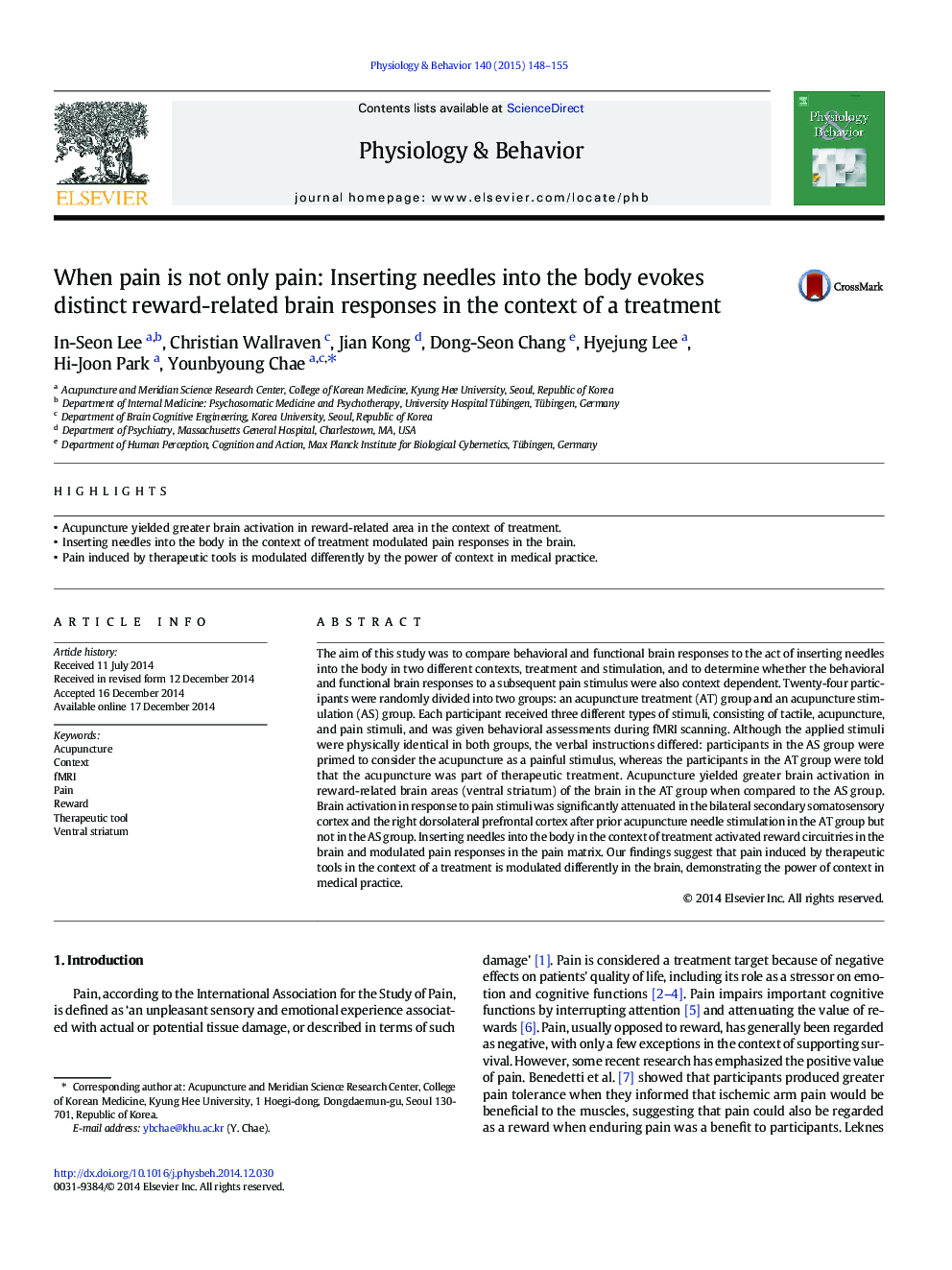| Article ID | Journal | Published Year | Pages | File Type |
|---|---|---|---|---|
| 5923828 | Physiology & Behavior | 2015 | 8 Pages |
â¢Acupuncture yielded greater brain activation in reward-related area in the context of treatment.â¢Inserting needles into the body in the context of treatment modulated pain responses in the brain.â¢Pain induced by therapeutic tools is modulated differently by the power of context in medical practice.
The aim of this study was to compare behavioral and functional brain responses to the act of inserting needles into the body in two different contexts, treatment and stimulation, and to determine whether the behavioral and functional brain responses to a subsequent pain stimulus were also context dependent. Twenty-four participants were randomly divided into two groups: an acupuncture treatment (AT) group and an acupuncture stimulation (AS) group. Each participant received three different types of stimuli, consisting of tactile, acupuncture, and pain stimuli, and was given behavioral assessments during fMRI scanning. Although the applied stimuli were physically identical in both groups, the verbal instructions differed: participants in the AS group were primed to consider the acupuncture as a painful stimulus, whereas the participants in the AT group were told that the acupuncture was part of therapeutic treatment. Acupuncture yielded greater brain activation in reward-related brain areas (ventral striatum) of the brain in the AT group when compared to the AS group. Brain activation in response to pain stimuli was significantly attenuated in the bilateral secondary somatosensory cortex and the right dorsolateral prefrontal cortex after prior acupuncture needle stimulation in the AT group but not in the AS group. Inserting needles into the body in the context of treatment activated reward circuitries in the brain and modulated pain responses in the pain matrix. Our findings suggest that pain induced by therapeutic tools in the context of a treatment is modulated differently in the brain, demonstrating the power of context in medical practice.
